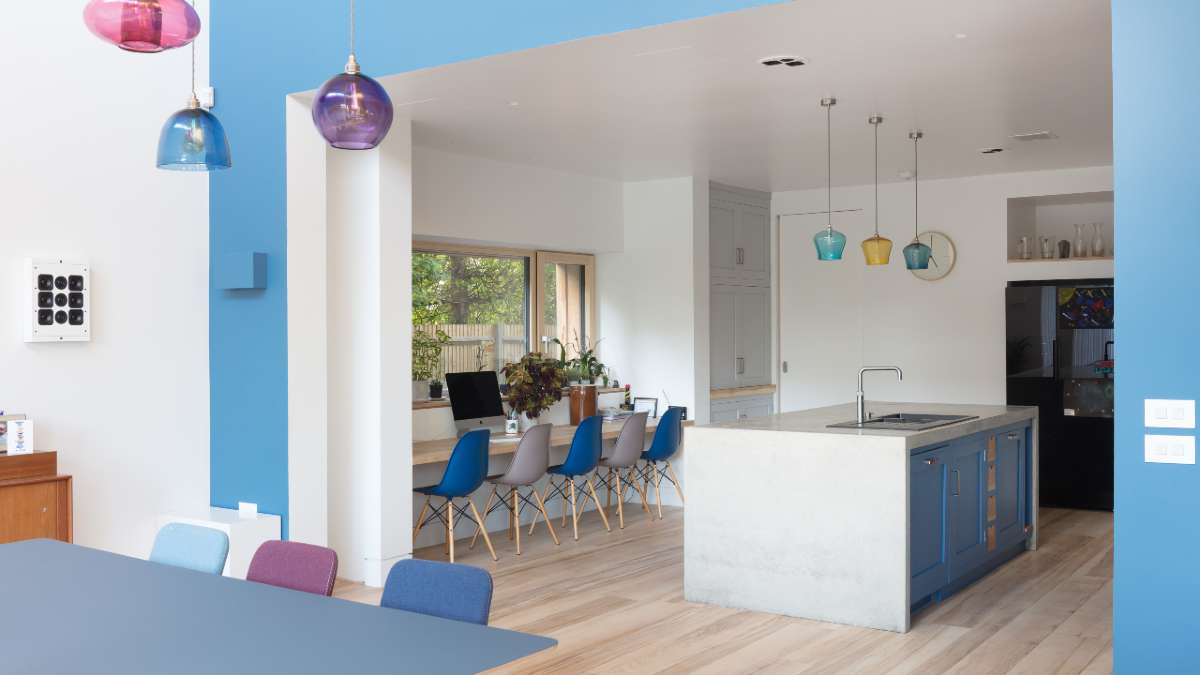
There two main reasons why people suggest wood flooring is not for kitchens. The first is moisture. Obviously there is a lot of moisture in the kitchen. Moisture may cause wood to swell if it absorbs water. When drying wood contracts and may warp.
Secondly the kitchen is a high traffic utility room. People tend to stand and walk around the cooker and sink where their shoes can often cause scuff marks.
Kitchen floors are faced with spills of all kinds and the occasional drop of a dish or utensil while cooking. If you prefer a pristine or highly polished look, maybe steer away from wood floors in your kitchen. On the other hand, if you prefer a home that celebrates a relaxed, casual environment, any dings and dents wood kitchen flooring might take on over time can play up the charm of a well-loved and oft-used kitchen.
What Is The Best Wood Flooring For A Kitchen Floor?
The main decision you will be faced with when looking at the different wood flooring types for kitchens will be whether to opt for a solid wood or an engineered wood floor. Most experts agree that engineered flooring wins hands down in this particular room thanks to its enhanced structural stability. Engineered wood offers the best stability, due to its multi-layered construction. Even when temperature and humidity vary with seasons or household activities, the floor will experience only minimal expansion and contraction when compared to solid wood floors. This makes engineered wood one of the most durable flooring types available.
Certain species of timber are a better choice for kitchen flooring than others. Hardwoods, such as oak, ash and Elm are far more resistant to the knocks and bumps that occur during everyday life in this busy space than softwoods.
Disadvantages Of wood Flooring In A Kitchen
Traditional kitchen flooring such as linoleum and floor tiles can be cleaning quickly with a broom to sweep away dust and dirt and then a good mopping. However, you do not want to use a mop to clean a wood kitchen floor. Amounts of water associated with this process will undoubtedly cause damage to the structural integrity of the material in a very short time.
Using the correct wood flooring cleaning product like Osmo intensive cleaner by following the instructions you will considerably extend the lifespan of your floor.
How To Seal Wood Flooring In A Kitchen
Finally, you need to seal the surface using a high-quality polyurethane or varnish. Apply the sealant using a clean paintbrush, making sure to follow the manufacturer’s instructions. Allow the sealant to dry completely before walking on the surface or replacing furniture.
Polyurethane – This offers the most protection from foot traffic and moisture. It is available as both a water based and an oil based product and has a plastic-like look.
Varnish/lacquer – a lacquered surface is extremely durable and is easier to clean. Lacquer also reflects more light, so may be ideal for smaller or darker rooms. You may opt for a matt lacquer surface which will give a more resilient finish. You may choose natural or a colour here are lots of shades to compliment your decor.
Oiled – an oiled floor can bring out the natural grain and colour of the floor, which you may prefer even though it will require more maintenance in the form of the regular reapplication of the oil finish. This gives you the widest choice of finishes from matt through to very high sheen and gloss. This finish will darken over time and exposure to the air. A very durable surface is achieved with a high gloss finish.
In Conclusion
Wood flooring may not seem like the obvious look for your kitchen. However, home-style and interior decorating doesn’t always have to go down the most popular and well used routes. If you believe that your home will look and feel better with a wood floor it’s your levels of commitment and hard work that will keep it in good condition for the coming years.

